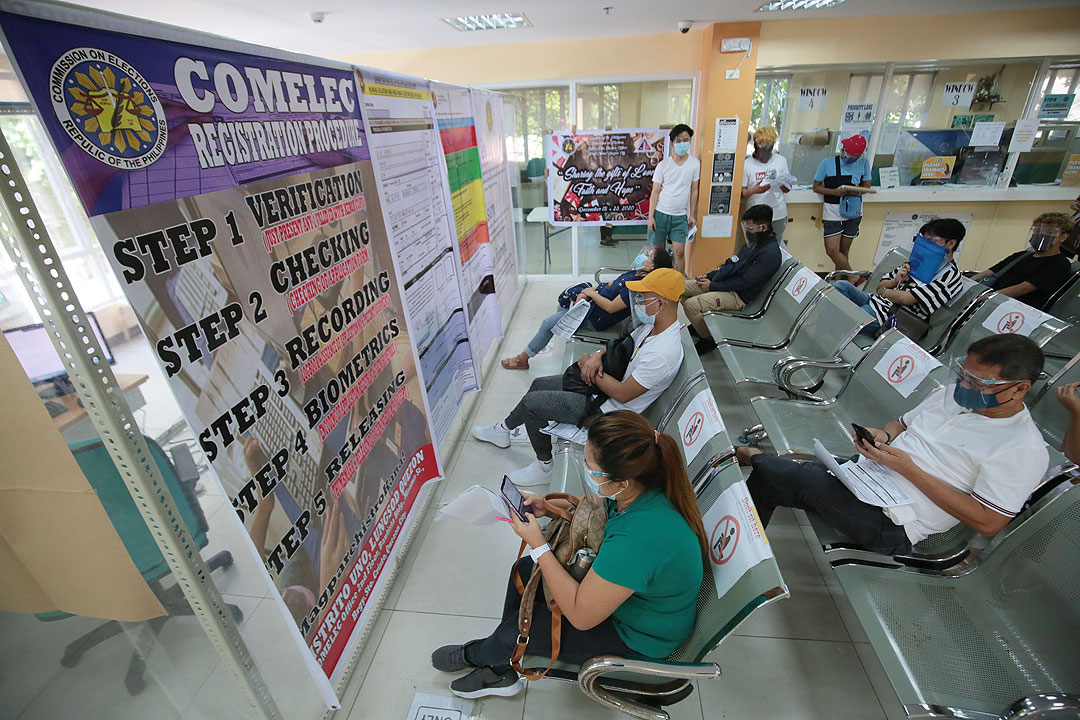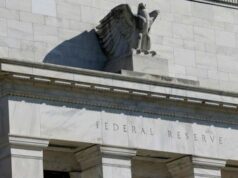Estranged Duterte allies start political pacts for 2022 elections

By Kyle Aristophere T. Atienza, Reporter
PHILIPPINE President Rodrigo R. Duterte’s political allies — at least those who are running for the country’s top two positions next year — have started to distance themselves from him and what he stands for.
But Dale Joyce Anding, a 21-year-old first-time voter from Manila, the capital, said she remembers the track record of these candidates and would never support them.
“I will never vote for someone who has defended and enabled Duterte and his policies,” the nursing student said in a Facebook Messenger chat. “I will vote for a candidate who has a clear program for health workers amid the coronavirus pandemic, not someone who abetted the government’s negligence and failed policies.”
 Few politicians have announced their political ambitions, less than a month before they file their certificates of candidacy for the 2022 national elections.
Few politicians have announced their political ambitions, less than a month before they file their certificates of candidacy for the 2022 national elections.
“They don’t want to be subjected to political attacks this early,” Ramon C. Casiple, executive director at the Institute for Political and Electoral Reform, said by telephone.
Senator Panfilo M. Lacson was the first to announce his presidential ambition, with Senate President Vicente C. Sotto III as his running mate. Both have criticized the Duterte government’s handling of the pandemic.
“Those who opposed the administration from the very beginning will remember how these two stood behind the President on many issues, especially on peace and order,” said Maria Ela L. Atienza, a political science professor at the University of the Philippines Diliman.
“While they may be challenging the administration now, they have been enablers of the administration for the past five years,” she said. “Before the pandemic, their stand on issues were the same as the administration.”
While the country’s more enlightened voters will probably remember their track record, most Filipino voters have political amnesia and might have already forgotten their alliance with the Duterte government.
“Now that they are positioning themselves as critical of the President, they will be more detrimental to the political opposition,” said Antonio P. Contreras, a political science professor from De La Salle University.
“This is bad news for the likes of Manny Pacquiao, Leni Robredo and Isko Moreno,” he said. “The Lacson-Sotto tandem could erode the opposition’s political base.”
Senator Emmanuel “Manny” D. Pacquiao, a former Duterte ally who has slammed state corruption, accepted on Sunday the nomination by a PDP-Laban faction to run as its presidential candidate.
Vice-President Maria Leonor G. Robredo, who has opposed the administration’s drug war from the start, is also considering running for president next year.
Earlier this month, another PDP-Laban faction supported by Mr. Duterte dropped the boxing champion from its senatorial slate. The faction has endorsed Mr. Duterte’s vice-presidential bid and a potential presidential run by his long-time aide, Senator Christopher Lawrence T. Go.
The Lacson-Sotto team is peculiar because they can potentially get votes from both the administration and opposition camps.
“But they are center in that sense only,” Michael Henry Ll. Yusingco, a senior research fellow at the Ateneo de Manila University Policy Center, said in a Facebook Messenger chat. “In terms of ideology, if we can call it that, the team is certainly closer to ‘Dutertismo’ than to liberal democratic thinking.”
“They are both always in the news, so the awareness level is optimal for them,” he said. “But their track records are spotty at best, so their popularity may not necessarily translate into votes.”
Ms. Robredo has said she might support a tandem between Manila Mayor Francisco “Isko Moreno” Domagoso III and Mr. Pacquiao if only to end the ruling party’s dominance.
“It’s taking her so long to decide because it’s very difficult to run a national campaign without a clear and stable support group, machinery and sufficient funds,” Ms. Atienza said.
She said Ms. Robredo might need the kind of support that the late President Corazon C. Aquino got from civil society in the 1986 snap elections against the late dictator Ferdinand E. Marcos.
She’s also having a hard time finalizing her decision because she’s been lagging behind in opinion polls, political analyst Jean Encinas-Franco said.
Two months before the filing of certificates of candidacy, Mr. Duterte mocked Mr. Domagoso, who he said does not deserve to become president given his past as a sexy actor.
Mr. Domagoso’s narrative could be easily discredited “because it’s personality — rather than platform-oriented,” said Cleve V. Arguelles, a political science lecturer at De La Salle University.
The mayor, whose rags-to-riches story — he used to be a scavenger and pedicab driver in one of the most populated districts in the Philippine capital before he was discovered by a talent scout — has captivated star-struck Filipinos, had done well in opinion polls.
He placed second to presidential daughter Sara Duterte-Carpio in the opinion poll for President, and second to Mr. Duterte in the vice-presidential poll.
MARCOS TIES
On Sept. 9, Ms. Carpio said she would no longer seek the presidency in 2022 after her father accepted his party’s nomination to run for vice-president next year. This is in keeping with their agreement that only one of them will run for a national post.
The President, who had flip-flopped on his 2016 presidential run, earlier said he would drop out of the vice-presidential race if her daughter runs for President.
Ms. Carpio heads Davao-based political party Hugpong ng Pagbabago, which has entered into alliances with various traditional parties.
Mr. Arguelles said Ms. Carpio might just be trying “to create a grassroots demand for her candidacy.”
“If there’s anything Sara learned from 2016, it is that she can always decide to run after all what’s been said,” the political analyst said. “Joining the race late isn’t a disadvantage.”
Mr. Yusingco said young voters would probably support either Ms. Robredo or Mr. Domagoso.
“I highly doubt that the Lacson-Sotto tandem will get any votes from the youth ranks,” he said. “If voter turn-out is high, and given the fact that majority of voters are between 18 and 35 years old, it’s more than likely that the tandem will fare poorly.”
Young Filipino voters now make up 52% of the country’s total registered voters, according to the Commission on Elections.
Mr. Contreras said the Duterte camp would likely consider ex-Senator Ferdinand “Bongbong” R. Marcos, Jr. as either a presidential or vice-presidential candidate.
“They could not afford to lose Bongbong because his loyalists are also their loyalists,” he said. In 2016, Mr. Duterte — the first President from Mindanao — won 16 million votes, and a big part of that was from Marcos supporters, he added.
The son of the late dictator has said he might run for a national position next year.
Mr. Yusingco said an alliance with the Marcoses would be “helpful but not indispensable.” “The Marcoses have a loyal following so they can bring in additional votes for party or coalition candidates, but their loyal following is only limited to the north.”
“Without the Marcoses, a political party or coalition can still perform well provided they secure alliances with the power brokers of the real vote-rich areas of the country like the National Capital Region, Central Luzon, Calabarzon, Cebu and Northern Mindanao,” he added.



